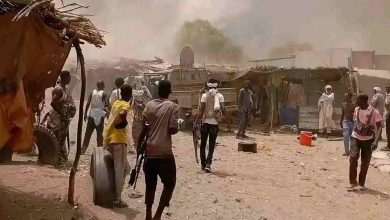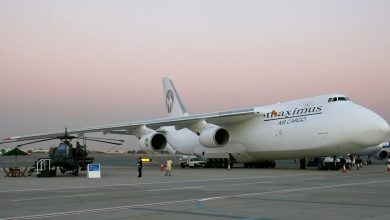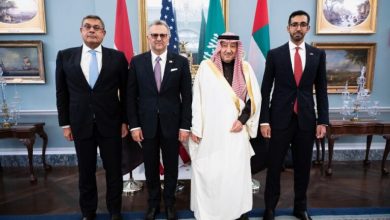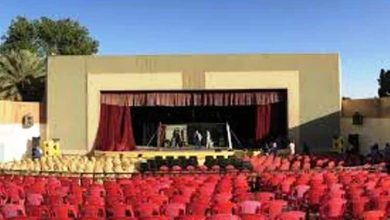One Year after War… Who is Fighting the Army?
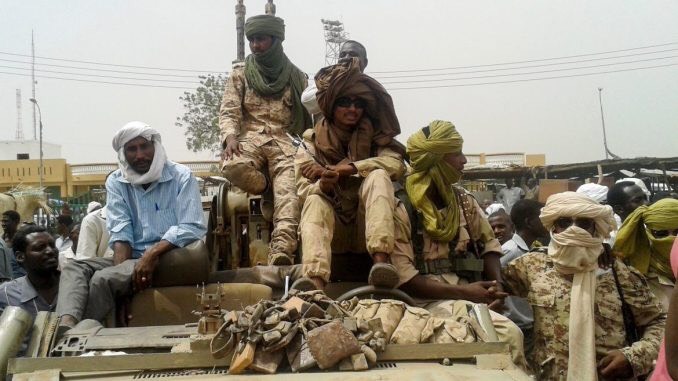
Sudan Events – Abdul Basit Idris
On April 15 of last year, the Rapid Support Forces (RSF) militia mobilized about 120,000 fighters and tens of thousands of weapons and combat and armored vehicles to control the army’s military headquarters, the capital, and the states, in preparation for seizing power, after killing or capturing the army commander, but the army thwarted the plan and was able to destroy that force. What are the parties that the army is still fighting?
Crowds and mercenaries:
Despite the outbreak of the rebellion in the strategic depth of the country, where the capital is Khartoum, thousands of militia members were killed at the gates of the army’s main headquarters, where the General Command and the Engineer and Armored Corps are located. However, the militia resorted to bringing in foreign mercenaries to fight on its side, and according to security sources it was entrusted with the task of bringing in the mercenaries to fight. In Sudan for a number of brokers and warlords, and Chad, with its complex internal conditions and fragile transitional phase, was a fertile breeding ground for militia leaders who found in some Arab movements what they sought for panic and rescue in the hope of expanding aspirations for power and money and extending control and influence. The most prominent of those who agreed with them were the The brokers, Omar Hamdan, placed the director of the Chinese-Chadian hospital, alongside the Chadian origin and Central African nationality, Mohammad Qamar Al-Salik, who is considered a close friend of the second commander of the militia, Abdulrahim Dagalo. These brokers were able to bring in tens of thousands of African mercenaries and deport a number of soldiers from the Chadian armed movements and from Among them are (the Fundamental Movement), (Justice for Reform and Change), and (the Comprehensive National Accord Movement), and among those participating are those who were killed on the battlefields, such as the head of the Chadian Opposition Coordination, Mohamed Abu Bakr Abdou.
According to security sources who spoke to Sudan Events, most of the Chadian mercenary fighters were those who worked in the Chadian regular forces, including (Ahmed Hamdan Jabr – an army officer) and (Al-Makai Bermah Al-Makai – a police officer).
The sources report that Abdul Rahim Dagalo, with the facilitation of Khalifa Haftar and his group, was able to conclude a number of agreements to supply the militia with weapons, fuel, and spare parts, in addition to bringing the Mahamid of Libya and a number of mercenaries into Sudan to work as snipers and professional killers.
Meanwhile, groups of mercenaries in South Sudan and Ethiopia formed an additional combat and intelligence force, and participated in the attack with the Rapid Support Militia forces on the Armored Corps headquarters, Wad Medani, the villages of Gezira, and the oil areas in West Kordofan.
Countries involved:
The report of the United Nations Group of Experts on Darfur revealed the direct involvement of the UAE, Chad and Libya in the Sudan war by bringing weapons into Darfur to support the Rapid Support Militia.
The report said that Emirati planes continued on regular weekly flights carrying arms shipments to Chad and Darfur. The report revealed that these weapons caused the Rapid Support militia to commit genocide and war crimes against 15,000 people from the Masalit tribe in the city of El Geneina and its environs in the state of West Darfur, in addition to committing the crime of murder. And to the state is Major General Khamis Abakar, who belongs to the movements that signed the Juba peace agreement
The report of the Committee of Experts issued last January stressed the need for entities and countries that facilitate the transfer of weapons and military equipment to Darfur to adhere to their duties under the arms embargo procedures in accordance with the provisions of the resolution.
The committee stated that violators of the arms embargo may be subjected to specific procedures in accordance with Resolution 1591 of 2005.
Regional and international silence:
The report of the committee of experts did not find any international condemnation, despite Sudan officially accusing the UAE and Chad of supporting the militia fighting the national army. The world learned of the scale of violations, crimes against humanity, rape, and forced displacement carried out by the Rapid Support Militia, which Sudan submitted, demanding that the militia be classified as a terrorist organization.
As an extension of the global silence, the systems concerned with politics and security in Arab and African countries were absent. This happened despite the negative repercussions of the Sudan war on the state of regional security and stability. Here, political analyst Abu Ubaida Awad says to (Sudan Events) that the absence of systems such as the Arab League and the African Intelligence Services Organization and African countries and groups receiving a rebel person Against his country and fighting a regular army is a matter that must be researched and studied in the context of the conceptual and functional reforms of these organizations. Awad considered that the concept of negative forces, combating terrorism, and the collective African and Arab orientation towards goals may be undermined by these countries and entities taking a position that Awad considers incorrect regarding the Sudan war.
Tricks and detours:
Not only did the UAE and other African countries support the Rapid Support Militia, which was revealed in the report of the UN Group of Experts and documented by the Sudanese authorities through an official complaint against the UAE submitted by Sudan to the Security Council, but they are still working to open alternative supply channels far from Darfur after the scandals it has been exposed to where it worked to transfer the war to Gezira, Sennar, and Gedaref. Here, a military source in the Sudanese army says: “They are working to open nearby supply lines to avoid the decision to ban the entry of weapons into Darfur, due to the distance from Khartoum, and the army’s destruction of most of those supplies during its long journeys from the north and west to central Sudan. The source considers that the battles of Sennar, Gezira, and West Kordofan are disrupting relations with South Sudan.” Sudan is one of their goals to prolong the war and force the army into negotiations.
Open battle:
Anyone who observes the war will find that the army is waging an open battle with visible and hidden parties, but he will also notice that it is a war that aims to destroy Sudan, the state and the human being. There is no evidence of that than the presence of hands and elements hiding behind the militia, where the deliberate sabotage of the National Museum and its looting, as well as the case in the oil and electricity sectors, the civil registry, and the National Records Office, the Army Military Museum, and the headquarters of the General Intelligence Service, then destroying the Agricultural Research Center in the state of Gezira and the Center for Improved Seeds and Cultivar, which provides its services to the Gezira Scheme, which has an area of two million and two hundred thousand fedans, and depriving its farmers of cultivation through forced displacement and attacks on villages.
